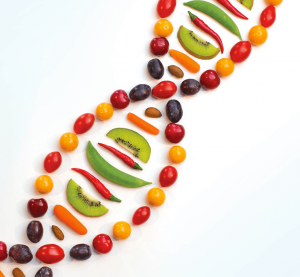Mindful Eating for Millennials
Oct 25, 2018
4911 Views
Eat to live or…live to eat?
A lot of us LOVE to eat, for reasons other than just survival. Although food is primarily the fuel that our body runs on, some of us look to our favourite food more often than we should – in happiness or sorrow. The mere sight of french fries, a chicken burger, salted caramel cookies, homemade sweets, certain memorable delicacies can make some hearts skip a beat!
Someone once said, “your love may betray you but ice cream never will!” But like everything one loves, excess of anything is bad for health.
Excess sugar can lead to diabetes.
Excess salt can lead to high blood pressure.
Excess food and no exercise can lead to obesity.
Mindless eating habits you need to chuck right away
- Eating when anxious, upset, depressed, angry…this is called eating our emotions. Some of us can’t stop munching when nervous, some broken hearts are only repaired by ice cream tubs and some fights are only resolved by chocolate cakes.
- Eating to impress someone, for making friends, for companionship is not a great idea! Peer pressure often results in mindless eating. Newly wed couples often perceive eating or sharing food as breaking ice in conversations ?
- “Munchies” at night or while working is also a distracted form of over – filling a full tummy. Chips, Popcorn, chocolate bars while typing away at the laptop is also a no-no!
- Ignoring your body’s warning signals can make you regret your decisions later!. Sometimes, we eat even when we are full. That extra piece of cake, that small portion of rice, that last sweet dish…you do know you have gone overboard when you can’t stand anymore. You are uncomfortable when you sit, when you can’t sleep, when your stomach complains the whole night.
- A common form of food binge is at parties, post alcohol and drug use. Most of the time, people don’t remember what they have eaten and after a particularly heavy session – the mindless eating results in vomiting.
- Fad diets such as a soup diet, zero-carb diet are not for everyone and definitely not good for optimal health management.

Does that mean one can’t enjoy the simple joys of food? What about people in the culinary field who are known for their refined palette? Well, there are ways around every dilemma.
Here are a few tips about Mindful Eating to help you
- You can always try and eat in small portions. Do not starve yourself! Taste it – do not gobble it!
- Eat slowly – chew properly! The brain apparently sends a “tummy full” signal 20 minutes after you begin eating. So slow it down – break it down – do not rush – savour the taste.
- When eating – Only eat! Yes, eating while watching TV or chatting on the phone prolongs the process. Concentrate on the food and taste, not on the drama around ?
- Have meals at fixed times. Try not to snack before or after a meal. This helps you keep a check on your portions.
- Spend dinner time with family learning how the food was prepared, is it a traditional recipe, what went into making it….knowing your food helps you relish the taste even more! Can you taste that hidden spice secret?
- Try and understand food nutrient levels. A colourful plate often has all kinds of nutrients. Once you learn about carb-protein-vitamin ratios, you will slowly start choosing different items in the supermarket and on the dinner table. One serving of potatoes is good enough, move to some greens, please!
- Choose fresh fruits and juices over carbonated ones.A light walk post a heavy meal works wonders, to ease the stomach.
- If you have a sweet tooth and simply cannot resist the sugar…make SURE to have a regular exercise routine. Work those calories off with running, gym, playing tennis or aerobics, to stay in shape!
- Loneliness and Depression need to be talked about. You need help – not food to battle it. Learn to understand the warnings and ask for help. It could be difficult but it’s not impossible.
- Give yourself a cheat day. Follow the golden rules of mindful eating all week and then gift yourself a break. Freedom is important!
Weight management 101
- Develop and maintain a lifelong relationship with food that’s healthy. Choose a diet plan that’s sustainable in the long run. After all, you cannot keep juicing, or avoid a specific food, forever!
- Yes, you do need to do the math – keep a caloric deficit for weight loss. Keep a caloric excess for weight gain. Maintain caloric intake that equals expenditure (metabolism, exercise, energy spent) for maintaining weight.
- You are human and you will indulge. Exercise regularly, so that your body whenever you do indulge.
- Know Yourself. Do not follow the crowd. Understand what works best for YOU by listening to your body’s signals, energy levels…and genetics. There are ways to ensure that you chalk out the best-suited diet plans. Check out Genomepatri and MyFitGene – Discover how you’re built (other than with Sugar, spice and everything nice – obviously)

So keeping in mind a few do’s and don’t s, one is safe to binge as much as they like! We all have different things we love and sometimes going overboard comes easily. When it comes to good food, few people can stay behind and practice caution. But once you understand the issue, you learn to be more careful! It’s not easy to shed 1-12 pounds, moreover it is most definitely not good to invite health related disorders. Eating disorders are all over the world, affecting men and women and even children at varied age groups. Mindless eating affects you not just physically and socially but also emotionally.
The world today offers a million number of opportunities and resources for help and education. So, if you are keen to learn and make a healthy change, it is time to invest in some quality reading.
Food and Nutrition are not the same thing
-The day you understand this difference you will be a step closer to mindful eating ?

